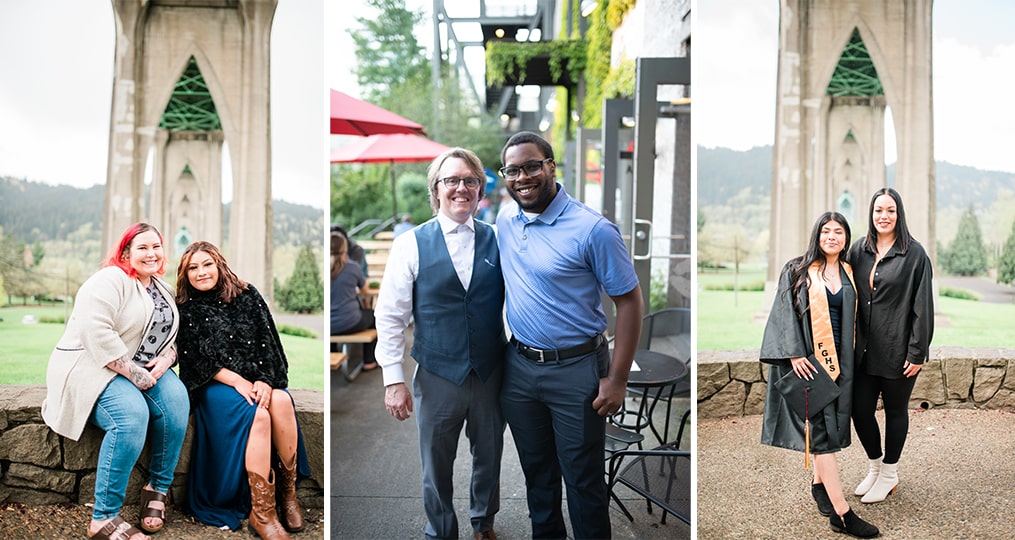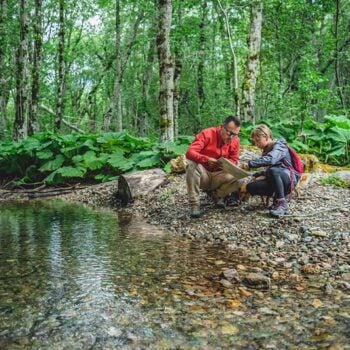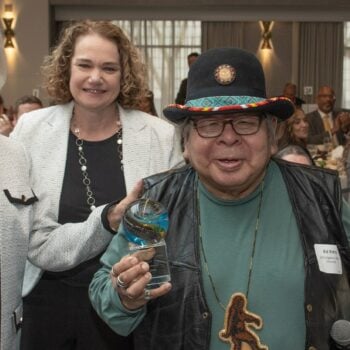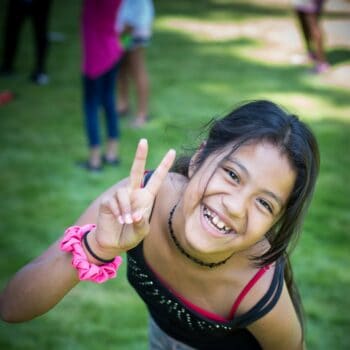Children in foster care face many challenges beyond the typical struggles of adolescence—including mental and behavioral health. Youth Villages is one of the larger programs in Oregon offering transitional services. Its mission is to help these children and families succeed.
Its LifeSet program has aided more than 20,000 children nationwide since it began in 1999. As one of the first of its kind, the philanthropically-funded program assists transition-age youth in obtaining higher education, housing, employment and more. It’s now one of the largest evidence-based programs in the country for young adults aging out of the foster care system.
Learn more about how Youth Villages is helping people in our community.
K’laja’s foster care transition.
In Oregon, more than 300 young adults “age out” of foster care each year. This means they emancipate from the state and become solely responsible for themselves. At this stage, young adults often enter the world with little to no support network.
K’laja was once a young adult in Oregon’s foster care system. She moved from home to home while in the system, an all too familiar situation for many foster kids.
Tragically, she endured violence and severe trauma during her time in the system. While living at an inadequately monitored residential facility, K’laja was relentlessly bullied and began to have serious psychological issues. Ultimately, it led to a failed suicide attempt. K’laja knew she needed more extensive help than her social workers could provide. Additionally, she wanted an opportunity to achieve her goals.
When she heard about Youth Villages’ LifeSet program she requested a referral to meet with staff. This was her first step to getting the support she needed to start her life after foster care. She began working with Youth Villages with only a few months remaining in state custody.
How the LifeSet program helps youth like K’laja.
When youth transition out of the foster care system they often lose all the services and benefits they relied on while in state custody. The loss of support leads these youth to have worse outcomes than their peers in key areas, including educational achievement, housing, employment and interactions with law enforcement.
LifeSet is a comprehensive, personalized, and evidence-based program that provides help to older youths transitioning out of the foster care system. Every week, LifeSet specialists:
- Visit with program participants in person
- Email and text on a frequent basis during the week
- Are available 24/7 for crisis support
The state of Oregon provides general support for youth aging out of foster care through its Independent Living Program. However, LifeSet offers a significantly higher level of service for these youth.
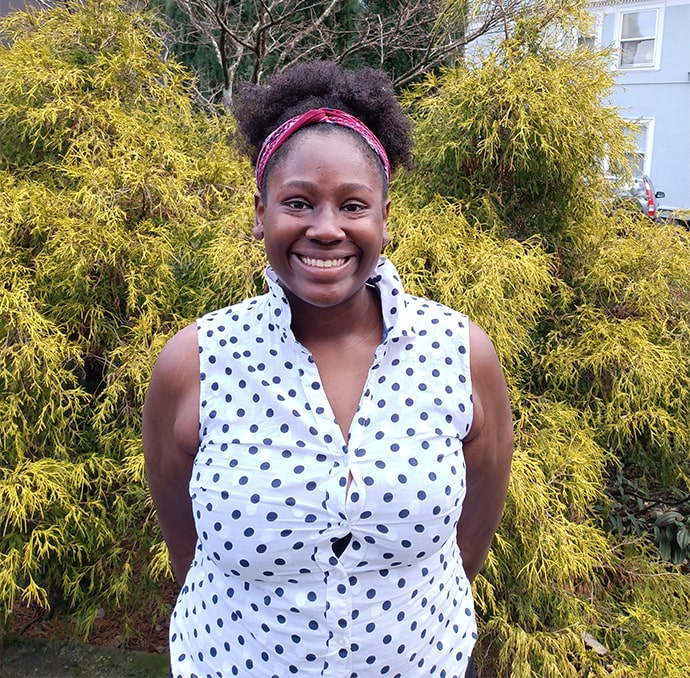
LifeSet is especially beneficial for young people like K’laja who have life goals but could benefit from greater assistance learning how to navigate adulthood outside of foster care. Since starting the program, K’laja has been focused on remaining in school, seeking part-time employment and securing housing.
K’laja is presently enrolled in classes at a local college and pursuing a diploma in sociology. She wants to attend law school and utilize her personal experiences in the foster care system to help improve outcomes for other children that enter the system.
Support from people who care makes the difference.
These youth face many critical challenges and they typically lack enough support to overcome barriers. For example, when K’laja abruptly lost her housing, her LifeSet specialist assisted her with locating a temporary apartment and helped her apply for vouchers to rent her own place. Additionally, her specialist was able to use funds from Youth Villages donors to purchase K’laja a new laptop to help with her college coursework. On her own, K’laja simply did not have the network or resources to find a new place to live and buy a laptop.
K’laja’s LifeSet program specialist, Jade, speaks highly of her, saying “K’laja is just really resourceful. She’s resilient, kind, compassionate and so optimistic. These are some of her greatest strengths that I admire about her.”
Despite the overwhelming challenges that young adults like K’laja face growing up in the foster care system, there’s still room for hope. Today, K’laja can refer to enthusiastic and compassionate social workers who went above and beyond to help her succeed.
LifeSet improves outcomes for local youth.
Kids in foster care face significant risks. According to Oregon.Gov, only 35% of high school students enrolled in foster care will graduate and only 2.5% of those students will successfully complete a four-year college degree. This shows that former foster children will have less opportunity and are more likely to face housing insecurity and unemployment.
In the spring of 2020, Children’s Rights conducted a study that found 50% of foster children who reach the age of 21 while in foster care will face homelessness before the age of 25. A staggering 80% of foster kids suffer from mental health issues and 25% of youth around the age of transition suffer from Post-Traumatic Stress Disorder (PTSD.)
Alternatively, Children in LifeSet achieve much better outcomes. One year after leaving the LifeSet program:
- 93% are able to live independently or at home with their families
- 89% have graduated, are working, or are still in school
- Only 9% of attendees have faced legal trouble
Program participants have a significantly greater chance of success after transitioning out of the foster care system when enrolled in LifeSet compared to peers who are not enrolled in a transitional program.
Youth Villages prepares kids and families to overcome challenges.
Youth Villages’ services plays a critical role in supporting kids and families facing some of the most difficult mental and behavioral health challenges. The programs are highly intensive and include meeting with a licensed mental health counselor, in-person, multiple times a week.
Jonathan Whitmore, now the Development Manager for Youth Villages Oregon, was once a mentor for a youth aging out of foster care in a different state. Here’s a story he shared with us about the limitations he faced before joining Youth Villages.
“This youth had everything stacked against him: he didn’t have a strong family structure to support him, no stable friend network, no housing. He had a record so it was incredibly difficult to find a job. He was in several foster care placements until he “aged out” of the system. Then, he experienced homelessness for over a year,” Jonathan said. “There was little I could do except be a positive presence in his life. When I learned about Youth Villages and how they support kids aging out of foster care, guiding them through major life experiences and helping them develop the skills needed to be successful, I remembered my experiences supporting this youth and I knew I wanted to work here and make a difference for these young adults.”
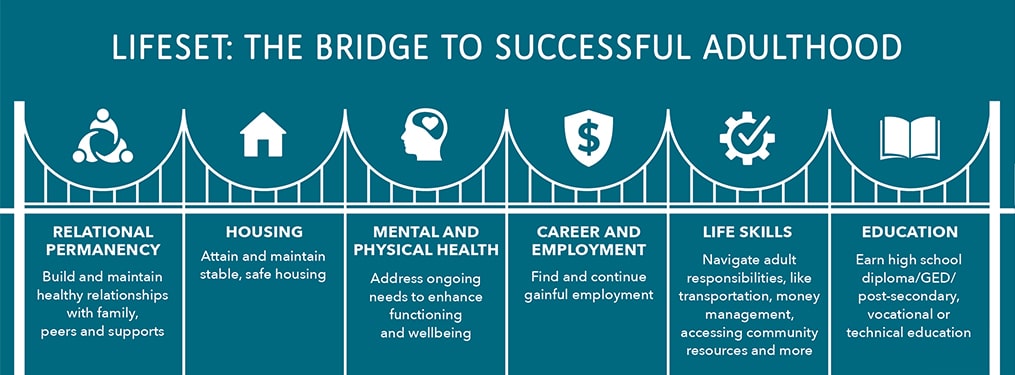
Youth Villages delivers a high level of care for youth that matches the intensive level of support they need. “One of our specialists told me once, ‘We aren’t the first therapy a kid in our programs will experience, and we won’t be the last. Our goal is that when a youth leaves our programs, we’ve prepared them and their family to tackle that next challenge and persevere through it.’”
Youth Villages’ success comes in part by tackling the issue of foster care in Oregon from both sides. In addition to supporting youth aging out of foster care, they are also working to stabilize families so fewer kids enter foster care in the first place.
Help Youth Villages create lasting change for transitioning youth in our community.
LifeSet provides up to 30 foster kids with services each year in Oregon. It is one of the only programs in the nation that has demonstrated excellent results for transition-age foster children.
 “We believe that the rate of children in foster care can be safely cut in half with the right kind of support to these families.” Andrew Grover, Executive Director of Youth Villages Oregon, said, “We also believe that we can develop the innovative interventions that help young people aging out of foster care get the support that they need and deserve.'”
“We believe that the rate of children in foster care can be safely cut in half with the right kind of support to these families.” Andrew Grover, Executive Director of Youth Villages Oregon, said, “We also believe that we can develop the innovative interventions that help young people aging out of foster care get the support that they need and deserve.'”
Oregon’s child welfare system has long struggled with financing, making it difficult for children in crisis to receive the help they deserve before they’ve been exposed to serious trauma.
Youth Villages is dedicated to supporting Oregon communities along with their mental health partners, and they have high hopes for the future of the LifeSet program. In 2022, OnPoint Community Credit Union donated $10,000 to Youth Villages to support at-risk youth in our community. Consider joining our support of Youth Villages by visiting their website to learn more and donate.


